by Pinchas Cohen
The Top Stories
- Oil recovers some of yesterday’s plunge on surprise US stockpiles increase
- BOJ discussions of rollback policy is unable to help yen
Global Affairs
The day has arrived— "Super Thursday".
The market is on hold while investor greed and fear take over, ahead of today’s three key events: James Comey’s testimony on whether President Donald Trump obstructed justice; the UK election and whether UK PM Theresa May was in fact able to bolster her power; and an ECB policy meeting, which for investors could turn into guidance on its stimulus policy once the press conference occurs.
US stocks declined on Monday and Tuesday on the disheartening Friday employment report, which followed a string of other disappointing US data. However, yesterday US equities crawled back up.
After a rampant eight sessions, oil collapsed after this week's inventory report was released yesterday.
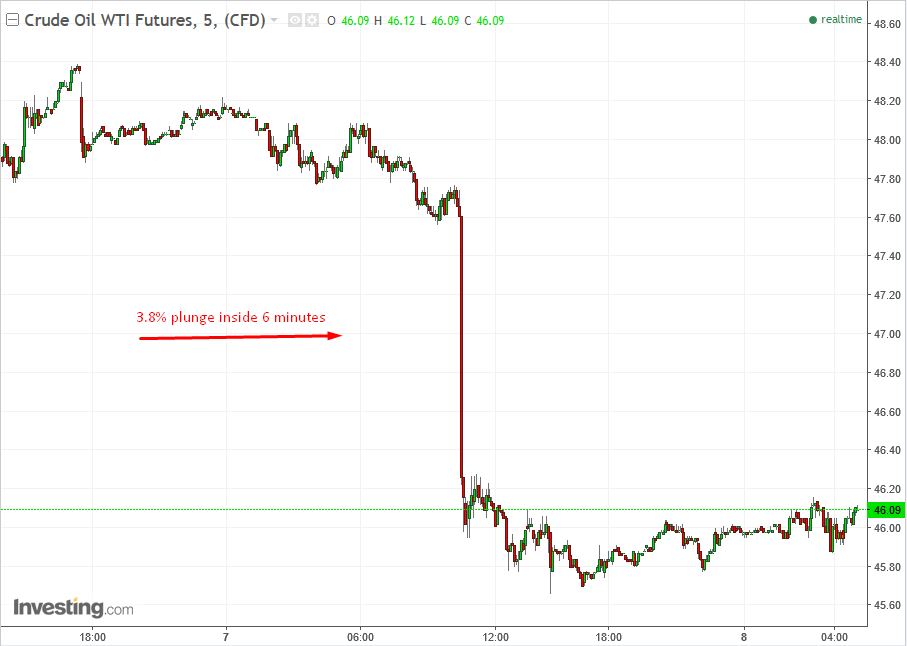
Oil’s wild swings started in May with the disappointing OPEC / NOPEC deal extension, continued with the Gulf crisis, and its fate was sealed yesterday, when US industry data surprised the market with an increase in crude inventories for the first time in nine weeks. Oil dropped a solid 5% yesterday—to its lowest close since May 4—making the overall loss since the disappointing May 25 OPEC extension deal 12% in just nine sessions.
Former FBI Director Comey released his prepared remarks for his testimony to the Senate Intelligence Committee yesterday. Critics of President Trump are pointing to instances in Comey's remarks as clear proof Trump was obstructing justice, whereas the President's supporters see nothing out of the ordinary. The jury remains out on this one. Perhaps Comey's oral testimony will add some clarity.
In Europe, investors have no expectation of a policy change in today’s ECB policy meeting. The buzz about Draghi’s providing guidance on a monetary rollback, on any level, has taken on a life of its own.
If Draghi wasn’t under enough pressure already, the report that the Bank of Japan is beginning to consider how to communicate future descaling will have a profound effect on the bank. Any Japanese rollback is grossly immature with that country's weak inflation, but there is growing pressure for the ECB to at least talk about it.
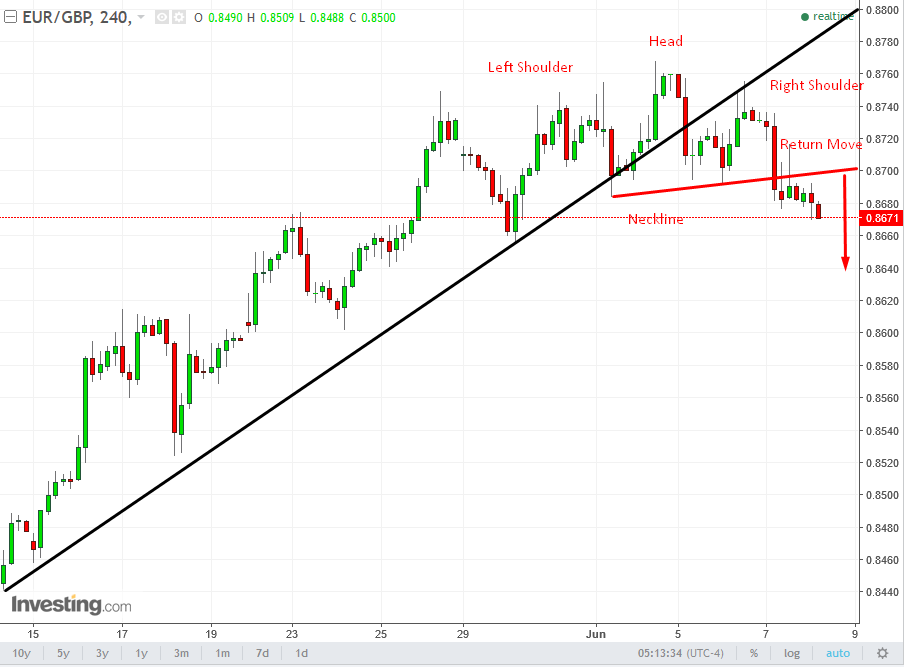
Should Draghi not provide traders with a sufficiently strong response, then there is an expectation of at least a temporary decline in the euro. The extent of the euro—in depth and time—is entirely up to Draghi’s language and conviction.
While the yen initially strengthened on the aforementioned report, the Japanese currency ultimately retreated to yesterday’s close.
Polls are open in the UK. The first indicators of the results will come at 10 PM London time (5 PM EDT), but the final result will only be known on Friday morning. This creates a conflict between euro and pound risk. The euro has been declining against the pound after a rumor the ECB will announce lower inflation projections today.
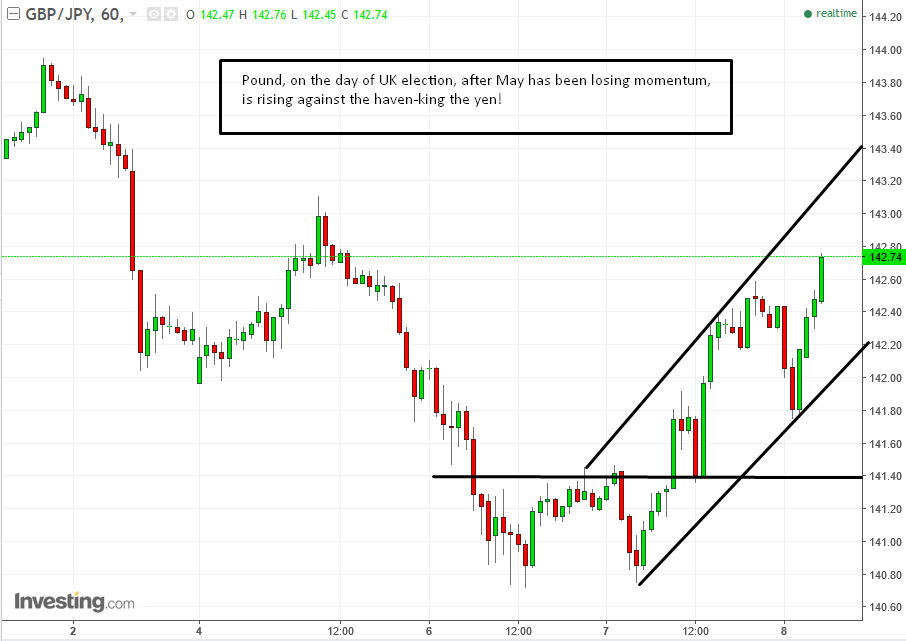
Surprisingly enough, the pound is rising, even against the yen.
Stock investors have displayed their faith in the global recovery, notwithstanding a most disappointing quarter. On the other hand, bond traders have a different view. They are increasing their bets on slower inflation. Today may prove pivotal for capital markets in general, and the stock markets in particular, after they have risen to the their highest point since before the 2008 crash.
Market Moves
Currencies
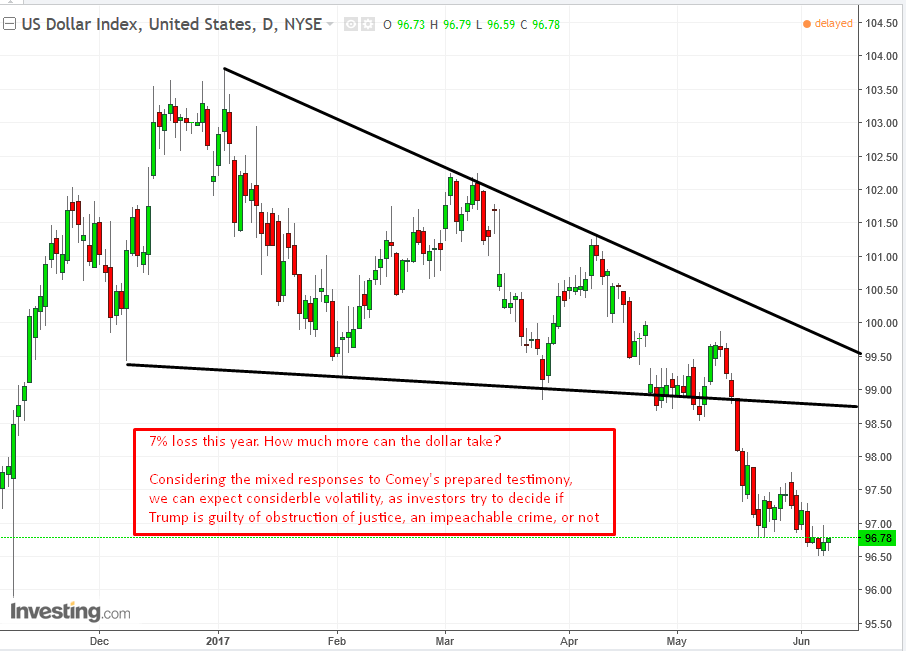
- The dollar index is up 0.2 percent at 96.769
- The yen is down 0.7 at 109.90, after it initially climbed 0.2 percent to 109.61 after falling 0.4 percent Wednesday. The BOJ is re-calibrating its communications to acknowledge that it is thinking about how to handle a future exit from monetary stimulus, without giving the impression that this is on the agenda anytime soon according to reports.
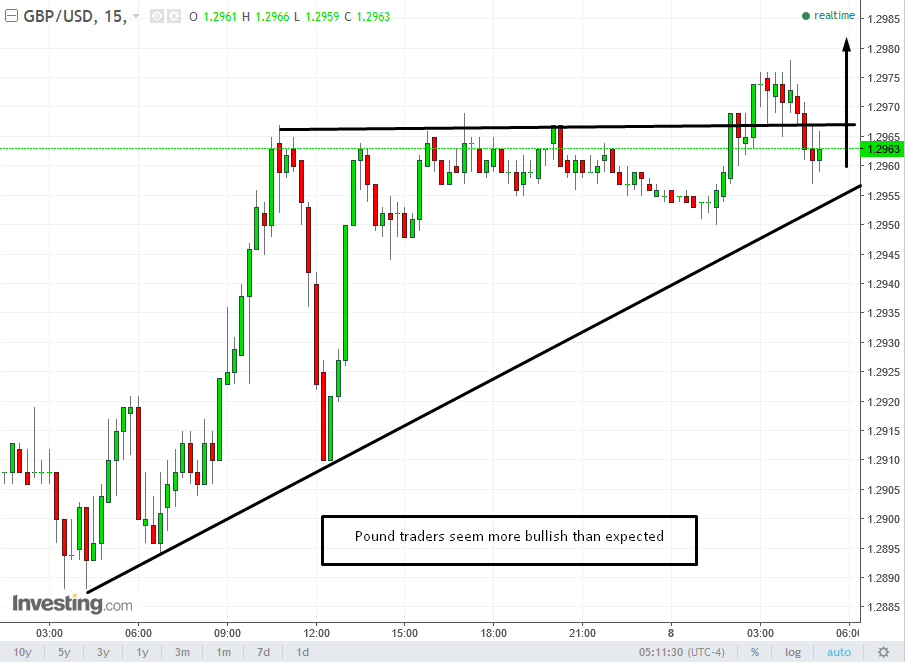
- The pound rose 0.1 percent to $1.2975, climbing for a fifth straight day for its longest winning streak of the year.
- The euro was flat at $1.1258.
Stocks
- The Stoxx Europe 600 Index rose 0.3 percent.
- The MSCI Asia Pacific fell 0.2 percent.
- The TOPIX lost 0.4 percent after the yen strengthened. Data earlier in the day showed Japan’s economy grew less than the government initially reported for the first quarter.
- Hong Kong’s Hang Seng and China's Shanghai Composite each increased 0.3 percent. China’s exports rose 8.7 percent in May in dollar terms, above estimates for a 7.2 percent gain, as global demand shows signs of picking up.
- South Korea’s KOSPI increased 0.2 percent, after erasing an earlier loss. North Korea launched a series of short-range missiles early Thursday that appeared to be designed to attack ships, the latest provocation by Kim Jong Un’s isolated regime.
- Futures on the S&P 500 added 0.1 percent after the underlying gauge added 0.2 percent on Wednesday.
Commodities
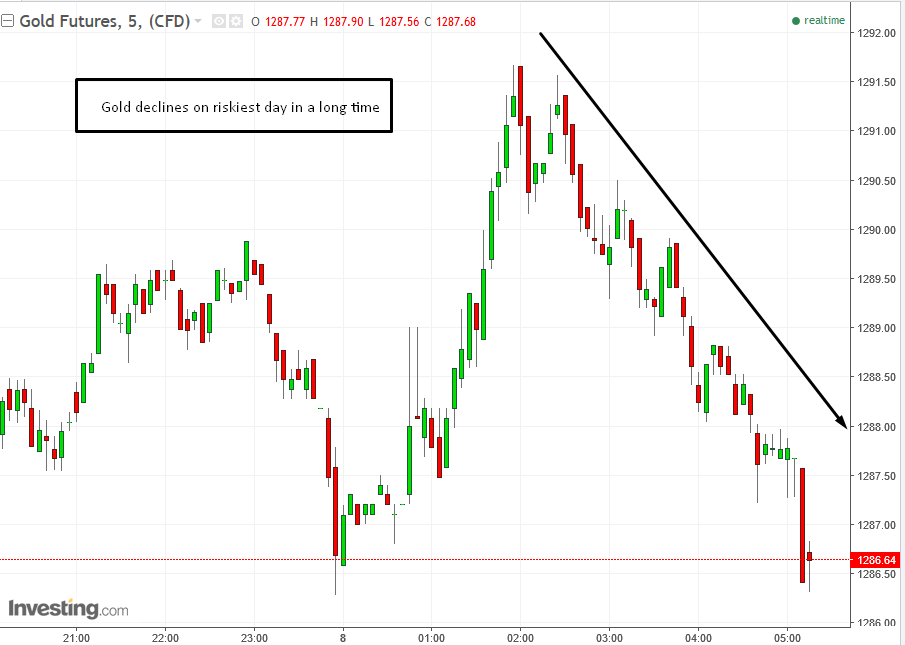
- Gold was little changed at $1,287.60 an ounce, after dropping 0.6 percent in the previous session.
- WTI crude added 0.9 percent to $46.13 a barrel. Oil lost more than 5 percent Wednesday after an unexpected increase in U.S. crude and gasoline stockpiles stoked fears that the global supply glut will remain unabated.
Bonds
- The yield on 10-year Treasuries rose one basis point to 2.18 percent.
- Australian benchmark yields advanced two basis points to 2.40 percent.
- The yield on Japanese 20-year bonds rose three basis points, climbing for the first time in five days.
- The U.K. benchmark yield was little changed, as were rates in Germany and France.
